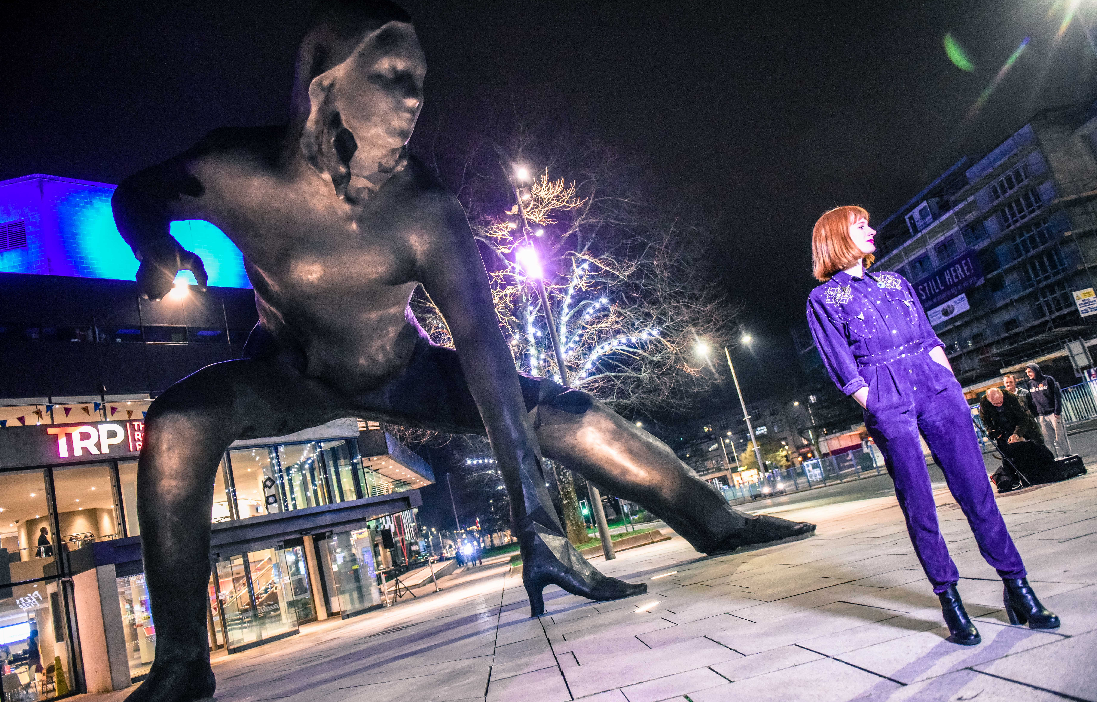
The Messenger sculpture outside Theatre Royal Plymouth. The theatre, hit hard by the lockdown, is consulting on more than 100 redundancies
Photo: Scott Calnon Photography
Arts sector worst hit as other industries emerge from lockdown
Ongoing closures mean the impact of Covid-19 is more severe for arts and entertainment than any other industrial sector – and the drought may not be over yet.
Arts, entertainment, and recreation are the worst hit of all business sectors, with organisations in these categories most likely to still be closed and losing money.
By the end of June, only 39% of businesses in the sector were trading. Larger businesses were even less likely to be open than smaller organisations and, while 42% of those employing fewer than 250 employees were trading, that figure fell to just 36% among larger organisations.
These figures are based on responses to a fortnightly business survey run by the Office for National Statistics (ONS). The Business Impact of Covid-19 Survey reveals the impact of the pandemic on turnover, workforce, prices, trade, and business resilience.
Comparisons with other sectors make for grim reading. More than 90% of businesses were open in 11 of the 12 other industrial sectors. Even in the accommodation and food services sector – also badly hit by the lockdown – more than half of businesses were trading by the end of June.
Furlough figures
Most arts, entertainment and recreation organisations had accessed one or more forms of government support: 93% had applied for the Coronavirus Job Retention scheme (CRJS) and 88% of arts organisations expected to continue using the scheme in July.
In total, over half of the sector’s workforce was still furloughed at the end of June – the highest of all industrial sectors and more than twice the rate of almost all others except food and accommodation.
But the figures suggest that the arts and entertainment industries have been more generous than some others at topping up CRJS payment, with over half (56%) of businesses providing a top-up to employees’ pay.
Arts, entertainment and recreation at the end of June 2020 • 61% of businesses were not trading |
Hopes of reopening?
With indoor performance allowed to resume on August 1, more and larger arts businesses will be looking to reopen.
But social distancing requirements and the lack of sufficient time to prepare a return to performing – ranging from two weeks’ to two days’ notice – means many will not resume trading immediately, and those that do may struggle to survive.
In a report released this week by the DCMS Committee, key figures in the sector said they did not see social distancing as a viable business model.
Theatre Royal Plymouth, which recently announced a consultation on more than 100 redundancies, told the committee it needs to sell 70-80% of seats to cover costs. Selling just 30-50% to comply with distancing guidelines isn’t enough, the theatre said.
The committee’s report said that arts businesses need “clear if conditional” timelines for full reopening and “technological solutions to enable audiences return without social distancing”.
A DCMS spokesperson said the department plans to respond to the committee’s recommendations at a later date.
Join the Discussion
You must be logged in to post a comment.